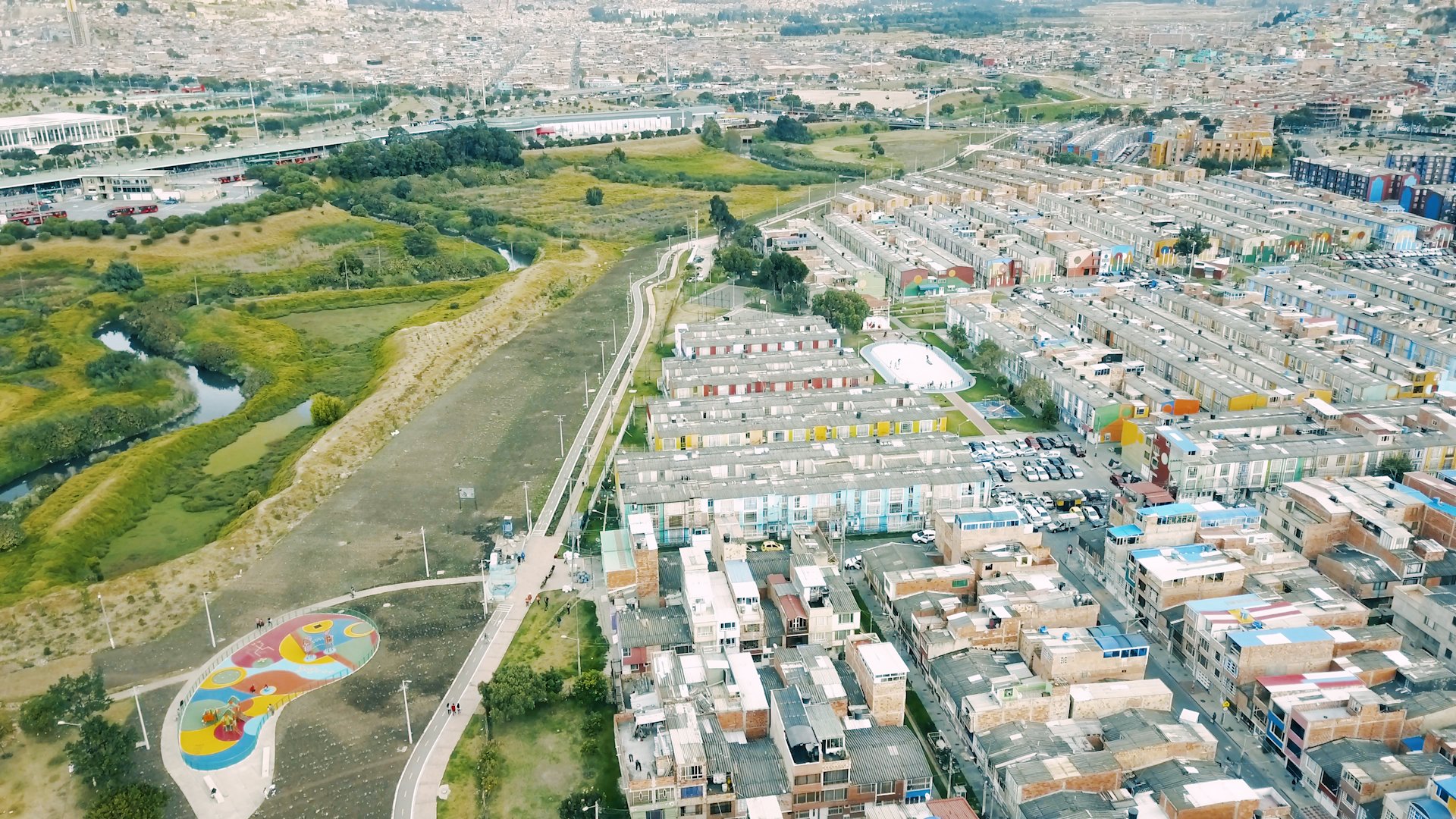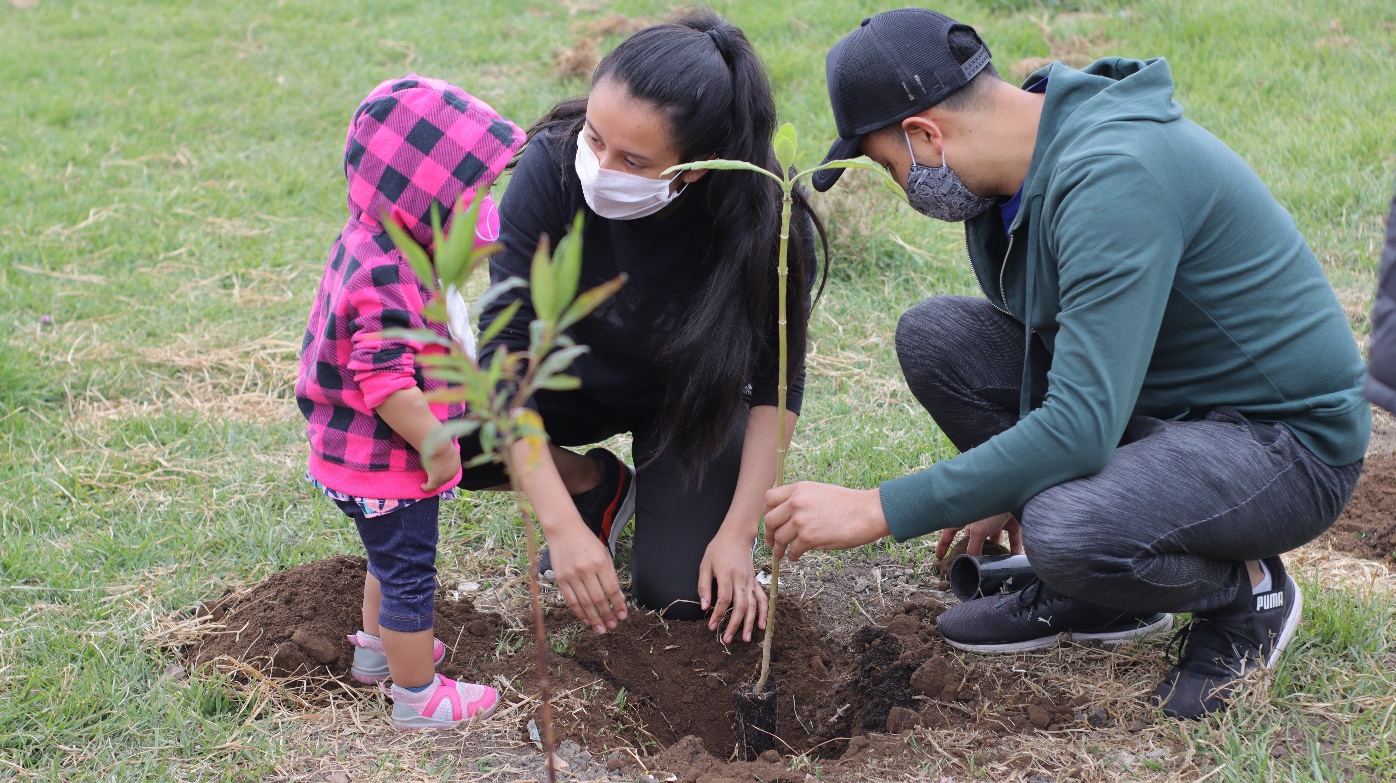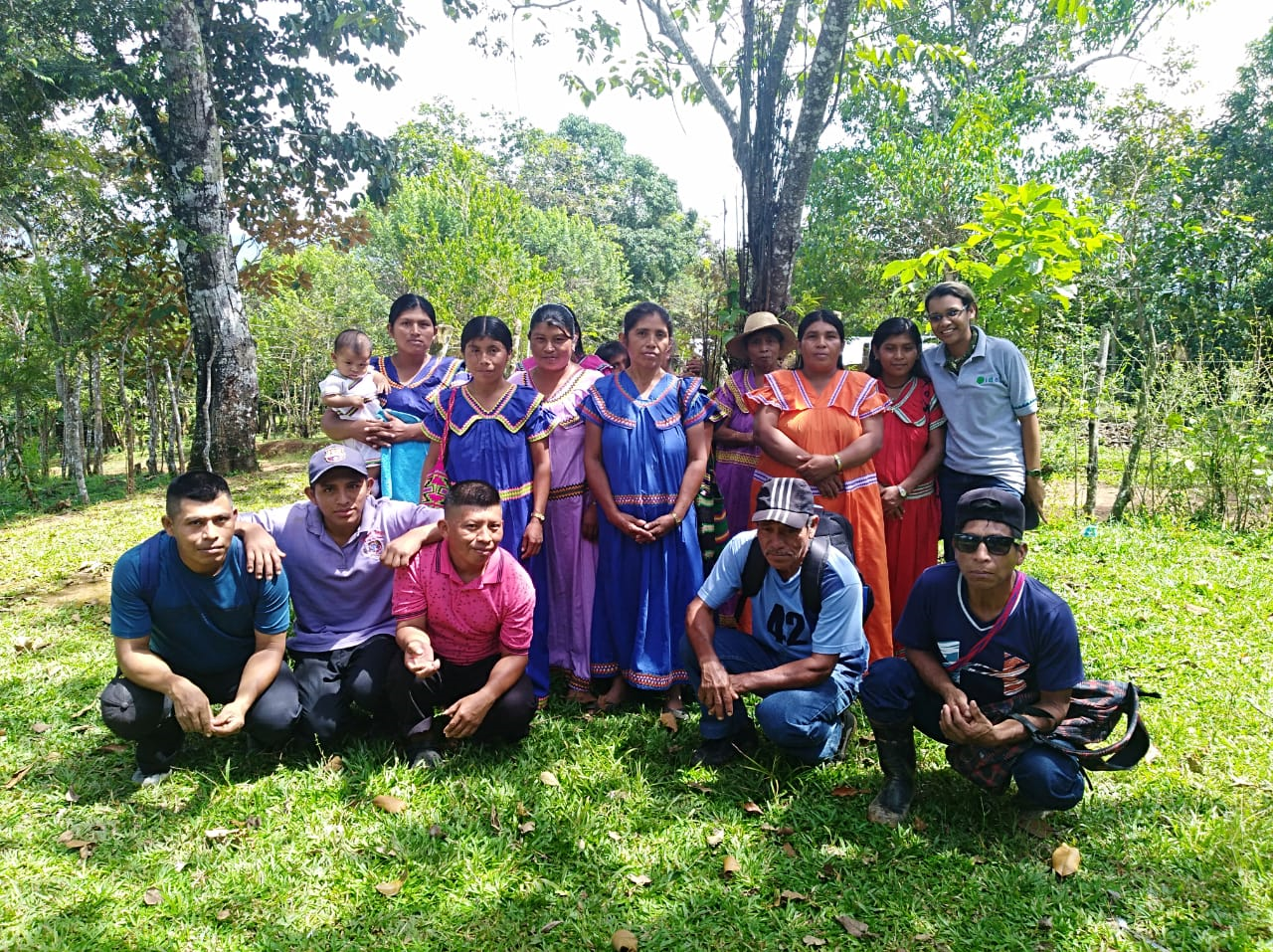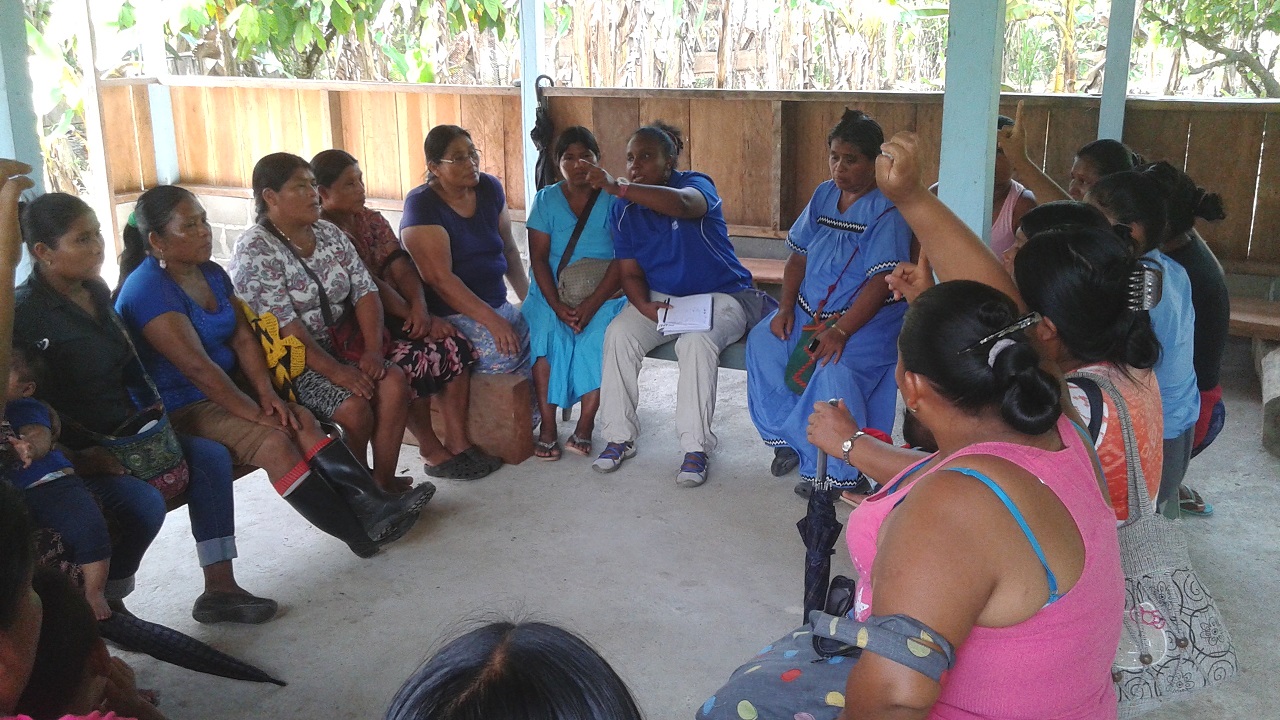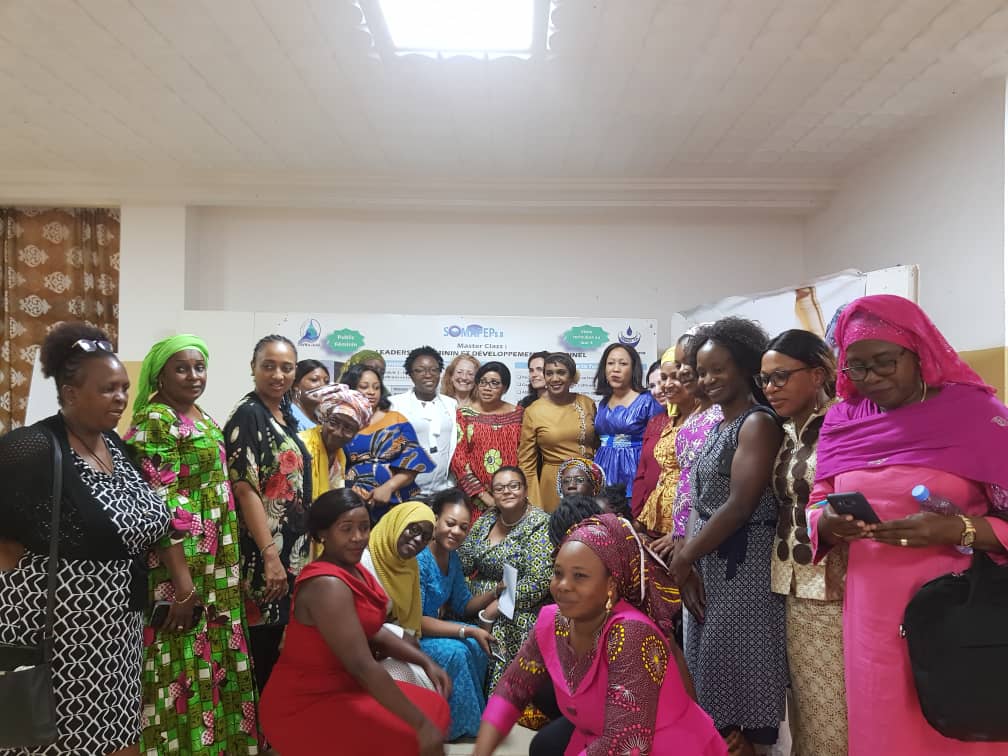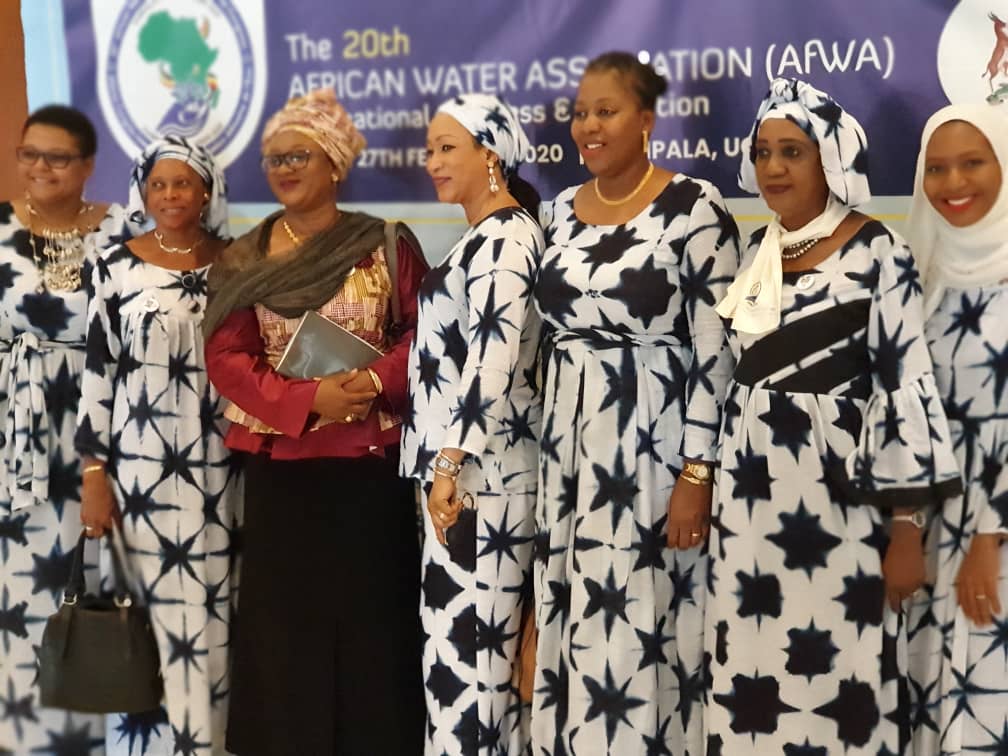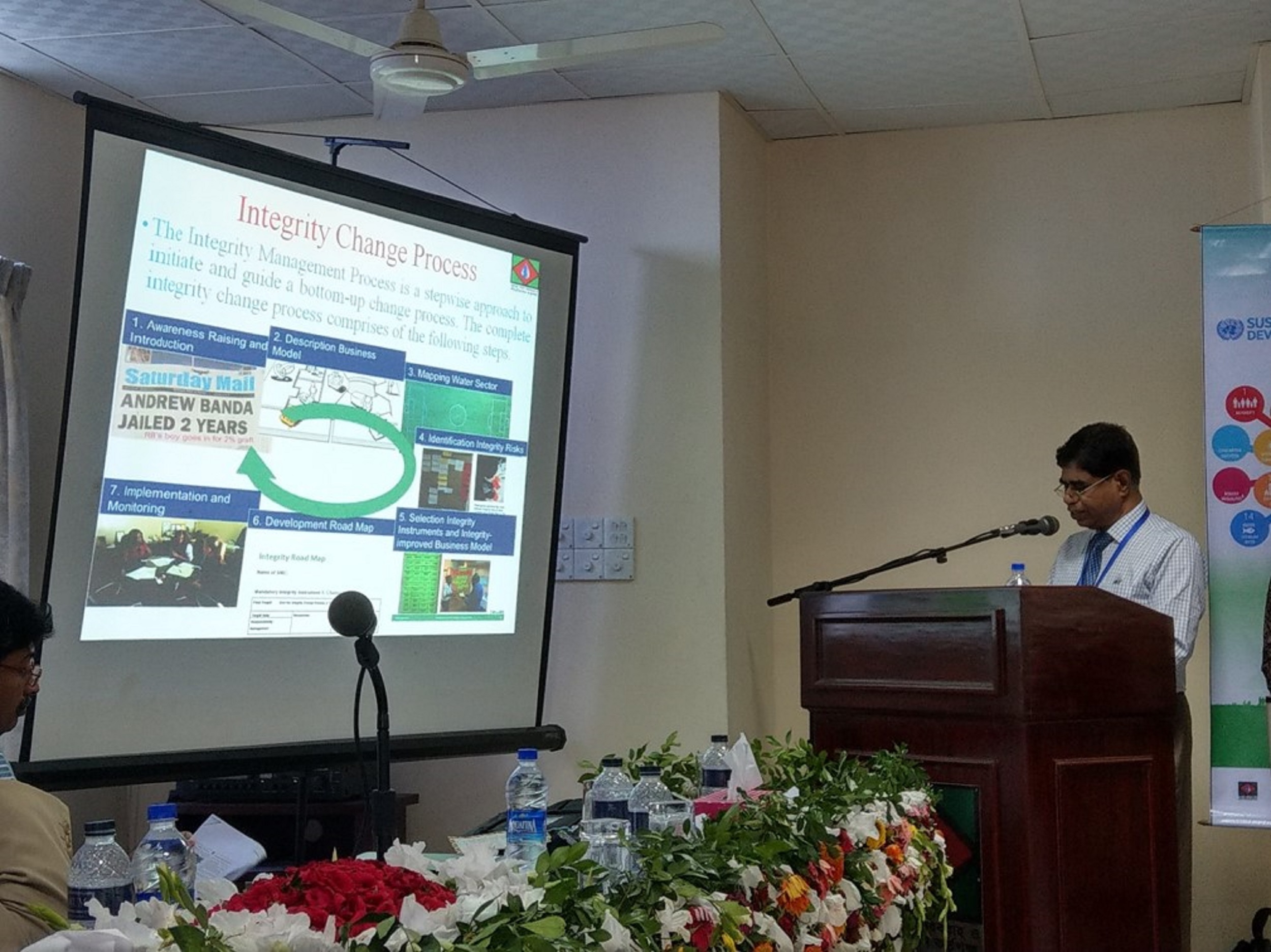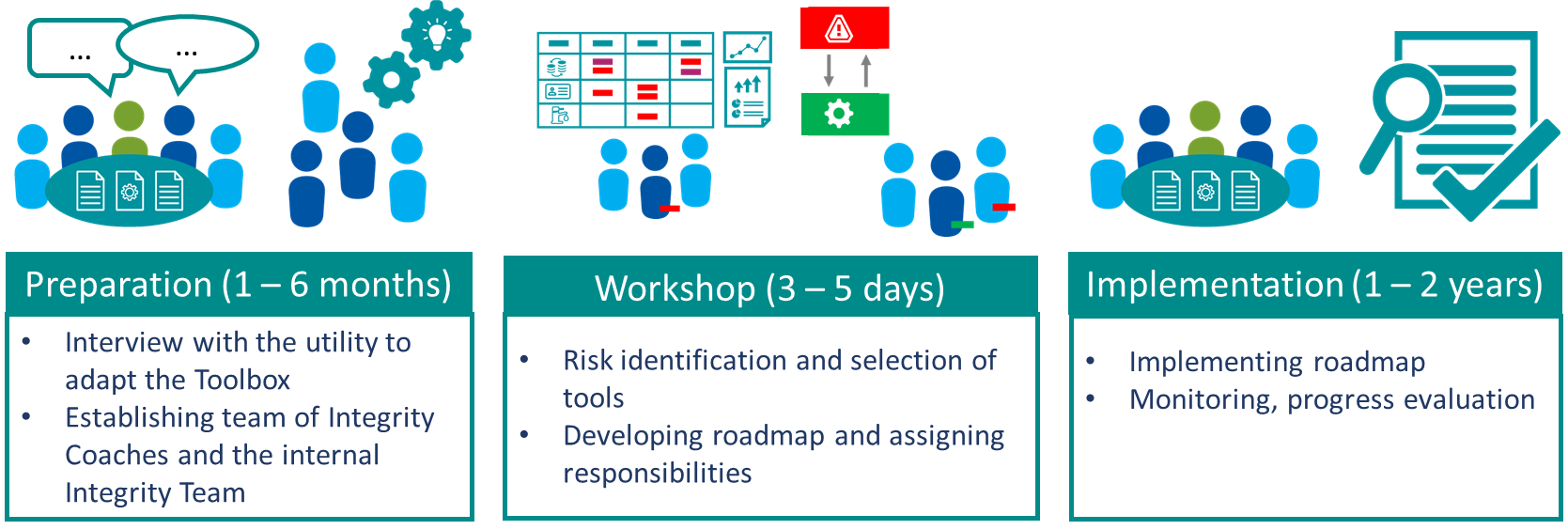


18-29 October 2021
Access the Congress virtual venue and revisit the sessionstowards

3223 visits to the Congress virtual venue
Learning from each other, sharing experiences, and inspiring action is a critical way for water and sanitation operators to improve their services and enrich the lives of the people they serve.
Collaboration and solidarity are at the heart of the Global WOPs Congress and the event seeks to be inclusive and fair in its representation. +more
This free and open event is convened by the Global Water Operators’ Partnerships Alliance - a global network of public operators and their partners - led by UN-Habitat
Download the Congress Brochure


We as GWOPA have a strong commitment towards gender, cultural, geographical and stakeholder representation, and work hard to ensure it is fair and even in all our activities. Now that it is the time to prepare the sessions and panels for the 4th Global WOPs Congress, we would like to share with you a few reflections and encourage you to consider them while proposing the speakers.
As all male panels are not only a misrepresentation of the sector diversity, but also a disservice to gender equality struggles in all its dimensions, we make gender diversity a precondition for GWOPA organized events. Not only female, but also young professional and mentee speakers are usually underrepresented and hence always encouraged. GWOPA is supporting speakers to panels and will offer special support and orientation sessions ahead of the Congress.
-
Main Sessions
Monday 25 OctoberUtilities making inclusive and safe sanitation a reality
#AdvancingSanitation
+ more infoMonday 25 OctoberWhat does Climate Resilience mean for Water and Sanitation Operators?
#ClimateAdaptation · #AdvancingSanitation
+ more infoWednesday 20 OctoberManaging and responding to natural disasters in a changing climate
#ManagingCrisis · #ClimateAdaptation
+ more infoThursday 21 OctoberLeapfrogging or treading water? Utilities picking up the pace at the water-energy-food nexus
#CircularDevelopment · #AdvancingSanitation
+ more infoTuesday 19 OctoberNature as Critical Infrastructure: operators looking beyond the pipes
#CircularDevelopment · #ClimateAdaptation
+ more infoTuesday 19 OctoberFighting COVID together – are utilities getting the support they need?
#ManagingCrises · #AccessForAll
+ more infoTuesday 19 OctoberMulti-stakeholder WOPs: Where NGOs, Academia and Others are adding Value to Utility Partnerships
#Governance
+ more infoTuesday 26 OctoberWOP Chef: Recipes for Enabling Water Operators’ Partnerships in Europe and Beyond
#Governance · #Finance
+ more infoFriday 22 OctoberTransparency, Accountability and Participation: which innovations for improving quality and efficiency of utilities?
#Governance
+ more infoWednesday 20 OctoberWOPs and Financial Linkages - Leveraging Peer Partnerships for Greater Impact
#Finance
+ more infoThursday 28 OctoberThe transformative journey of knowledge in a WOP, from need to impact
#Knowledge
+ more infoFriday 22 OctoberThe P is Key! Focusing on Partnership quality for successful WOPs
#Knowledge
+ more infoThursday 28 OctoberI WOP, EU-WOP, We all WOP - An open launch of the new EU-WOP Programme Partnerships
+ more infoTuesday 26 OctoberThe Global WOPs Observatory: WOPs data management for more and better WOPs
#Monitoring
+ more infoWednesday 27 OctoberHow can a WOP boost your career as a water professional?
#Knowledge
+ more info -
Regional Sessions
Thursday 21 OctoberSesión regional América Latina y Caribe / Latin America and the Caribbean Regional Session
#RegionalEvent
+ more infoThursday 21 OctoberEffective Capacity Development through WOPs and Webinars During a Pandemic: lessons from Asia
#RegionalEvent
+ more infoMonday 25 OctoberBoosting access water and sanitation services in Africa through peer-to-peer learning partnerships of operators
#RegionalEvent
+ more infoThursday 21 OctoberSuccessful factors for enabling WOPs: The French case
#RegionalEvent
+ more infoWednesday 27 OctoberBuilding Together the Water and Sanitation Sector in the Pacific and the Caribbean Through Peer-to-Peer Exchange and Improved Monitoring
+ more info -
#OPERATORsSTAGE events
Wednesday 20 OctoberLessons from the German Operators Neighbourhood System – would it work for you?
#knowledge · #OperatorsStage
+ more infoTuesday 26 OctoberInnovative Asset Management for Water Utilities in South East Europe
#OperatorsStage
+ more infoWednesday 20 OctoberTestimonies on Strengthening Integrity among Water Operators
#OperatorsStage · #Governance
+ more infoThursday 28 OctoberHealth, Safety and Dignity of Sanitation Workers
#OperatorsStage · #AdvancingSanitation
+ more infoTuesday 26 OctoberSustainable rural water operators´ management model
#OperatorsStage · #AccessForAll
+ more infoWednesday 20 OctoberHow to increase the resilience of water and wastewater utilities in the face of climate change and increasing disasters
#OperatorsStage · #ManagingCrises
+ more infoThursday 28 OctoberGuidelines for Customer Survey and Complaint Management
#OperatorsStage
+ more info -
Side events
Wednesday 27 OctoberAdvancing SDG 6.3.1 monitoring at the local level – Utilities championing urban wastewater treatment
#SideEvent · #AdvancingSanitation · #Monitoring
+ more infoMonday 25 OctoberPlanning in an uncertain future: The Climate Risk Informed Decision Analysis (CRIDA) methodology
#ClimateAdaptation · #SideEvent
+ more info
Speakers - Opening Session
What
makes the WOPs Congress different
United by solidarity
United by solidarity
Water Operators’ Partnership and other not-for-profit peer support exchanges will take center stage.
The Congress is a moment for the GWOPA network and new partners to come together around a shared commitment to helping each.
Diversity
Diversity
The WOPs Congress has been designed in close consultation with a Congress Taskforce (public operators, WOPs facilitators, donors, workers’ unions and civil society organisations) to ensure it shines a light on real actions, impact, and opportunity to increase progress on Sustainable Development Goal 6.
A focus on operator staff
A focus on operator staff
WOPs support operator staff to do their job better and they are happening all over the world.
The Congress will bring together hundreds of operator staff to tell their stories, learn from each other and inspire individual and collective action.
Moving towards sustainable access for all
Moving towards sustainable access for all
The Congress is convened by the Global Water Operators’ Partnerships Alliance – a diverse network largely made up of public water and sanitation operators along with their partners.
Participation is free of charge and open to all organisations and individuals with an interest in sustainable water and sanitation.
Why
Why participate?
LEARN: Contribute to and benefit from collective knowledge on peer-to-peer partnerships and the work of water operators.
SHARE: Strengthen or build new partnerships and exchange experiences with water operators and their partners.
INSPIRE... and GET INSPIRED!: Expand support for water operators and peer-to-peer learning amongst relevant stakeholders and the general public
Participation has no cost and online participation will allow everyone to take part.
Who
Who will be there?
Stakeholders from all walks of life who support public water and sanitation utilities, including national, sub-national and local governments, donors and financial institutions, knowledge and academic institutions, multi-lateral organizations, civil society organizations, workers unions, water regulators and business.
For those new to WOPs and GWOPA, the Congress is an opportunity to interact with a global network of actors committed to solidarity and peer support in the water and sanitation space.
Where
Where
The event is convened by GWOPA in its host city in Bonn.
Online participation will allow alliance partners, members and newcomers to participate.
Networking and e-socialising events will be organised to connect different individuals across the globe and build new partnerships and synergies.
Registration will open in June 2021.
Congress partners
Congress partners
The 4th Global WOPs Congress is made possible by the generous support of the German Federal Ministry for Economic Cooperation and Development and the City of Bonn, and with the ongoing work of the BEWOP project, WaterWorX, OFID SIP WOP Project.
The Congress is a collaborative effort from the entire GWOPA network, special thanks to the Congress Taskforce and regional WOPs platforms for their inputs.


Good
Practices
2021
In late September 2021, the UN-Habitat's Global Water Operators' Partnerships Alliance launched a Call for Good Practices to identify, celebrate and encourage sharing of good practices on gender inclusion, and transparency and integrity, in water and sanitation utilities and Water Operators' Partnerships (WOPs).
Discover the selected good practices
-
Champion
"Entornos verdes y seguros para las mujeres"
Submitted by Empresa de Acueducto y Alcantarillado de Bogotá (EAAB)
#ColombiaDESCRIPTION
Los cuerpos hídricos en Bogotá han sido objeto de invasión y uso inadecuado del suelo, condiciones que han llevado a la EAAB-ESP a generar procesos de saneamiento hidráulico y a generar procesos participativos para el uso adecuado de estos espacios para el disfrute público.
La EAAB-ESP ha acompañado las iniciativas de las mujeres lideresas para la recuperación del Humedal La Vaca, de donde surgió la fundación de mujeres Grupo de Banco de Semillas. Con el apoyo y liderazgo de mujeres de la comunidad y las actividades que realiza la EAAB-ESP para el mantenimiento integral de 2,24 Has del humedal, se adelantaron trabajos como: cerramiento provisional, siembras de restauración, extracción y retiro de RCD y residuos ordinarios, nivelación de terreno y recuperación de espejo de agua y plantas acuáticas. Así como múltiples talleres informativos y de sensibilización sobre los servicios ecosistémicos, la importancia de la protección y conservación de la flora y fauna de los humedales.
Por otro lado, el proyecto Corredor Ambiental Tunjuelo-Chiguaza es un proyecto de infraestructura con enfoque de género que ha mejorado condiciones de seguridad de las habitantes del sector, con el fin de contribuir al disfrute y apropiación de la ciudad en espacios públicos seguros y ambientalmente sanos. Es un proyecto integral urbano, arquitectónico y paisajístico, con el cual se busca mitigar situaciones adversas que se presentan en el río con sus quebradas que son afluentes, así como articular los cuerpos de agua con los desarrollos que se localizan en su entorno como eje estructurante ambiental.
PHOTOS
-
Runner up
"Escuelas de Lideresas para la gestión del agua y saneamiento"
Submitted by Agencia Española de Cooperación Internacional para el Desarrollo (AECID)
#Nicaragua #PanamaDESCRIPTION
La garantía de participación de las poblaciones beneficiarias, especialmente en la toma de decisiones en los programas y respecto a la gestión y mantenimiento de los sistemas ha sido uno de los pilares de los programas del Fondo de Cooperación para Agua y Saneamiento (FCAS), impulsando la perspectiva de derechos humanos. Las mujeres son las que, dada la distribución de los roles de género y la división sexual del trabajo, asumen las tareas de acceso al agua de las familias, gestionan su uso al interior de la casa, y de asegurar el buen uso de los sistemas por parte del resto de miembros de la familia, pero sin poder de decisión ni control de los recursos.
La integración de la perspectiva de género dentro de las actividades de participación es uno de los elementos clave para mejorar y reconocer los roles de las mujeres dentro de la toma de decisiones asociada a los mismos. La Escuela de Lideresas se implementó por primera vez en el marco de los programas FCAS/AECID en Nicaragua, siendo una experiencia exitosa y logrando la incorporación de las mujeres como gestoras y decisoras de los sistemas de agua y saneamiento. Esta práctica se ha replicado en Panamá durante el año 2019, en el contexto donde trabaja el FCAS junto con el Ministerio de Salud, áreas rurales, dispersas y de población indígena de la Comarca Ngäbé-Buglé, impulsando el empoderamiento y liderazgo de las mujeres y promoviendo su capacitación para la inserción de las juntas comunitarias de agua.
PHOTOS
-
Special mention - WOP practices
"Mentoring and career development for women and young professionals"
Submitted by Société Malienne de Gestion de l'Eau Potable SA (SOMAGEP SA)
#MaliDESCRIPTION
The WaterWorX project is a WOP that aims to strengthen SOMAGEP SA, the Malian water utility. This partnership with World Waternet in Amsterdam was initiated in 2018 and allowed SOMAGEP SA to focus on areas such as Non-Revenue Water, service coverage for vulnerable populations, leadership and organizational development, and water quality. SOMAGEP was already involved in gender activities through AFSO, the women association of SOMAGEP and the REMAFPEA (WASH professional women cluster of the African Water Association). During WaterWorX Phase 1 (2018-2021), AFSO initiated the process of gender certification from UN Women to evaluate current gender inclusion practices within the company. The feedback from this evaluation confirmed that SOMAGEP was on a good track but needed to further structure their existing practices. Since, the WaterWorX supported several training and inclusion initiatives that were specifically designed by and for the women of AFSO and REMAFPEA. In addition, via the WaterWorX WOP, the young professional network (AJPEA) was supported in promoting and communicating about social connections in favor of pro-poor communities within water supply projects financed by IDA, AFDB, AFD, etc.
PHOTOS
-
Champion
"Integrity Management in Khulna Water and Sewerage Authority"
Submitted by the Water Integrity Network (WIN)
#BangladeshDESCRIPTION
An Integrity Management project was initiated in 2015 with the Khulna Water Supply and Sewerage Authority (KWASA) in Bangladesh that illustrates how a public sector utility can implement a management approach based on a structured change process to achieve improved performance and strengthened integrity. The water operator, which serves the City of Khulna (population of around 1 million), initiated the integrity change process supported by the Water Integrity Network (WIN), the Bangladesh Water Integrity Network (BAWIN), as part of Transparency International Bangladesh and the Centre for Water Management Services (cewas). The project was implemented between 2015-2017 and currently, a 2nd phase of the project is under implementation with NGO Forum as local partner. The project is in line with the Bangladesh government’s National Integrity Strategy, which urges government institutions to establish anti-corruption and integrity systems, especially through proper implementation of rules and regulations, procedural reform and capacity development.
KWASA, as a relatively new operator, was struggling to handle its internal management while simultaneously ensuring adequate service to customers, showed an interest in knowing more about integrity management. WIN introduced the Integrity Management Toolbox (IMT), as a means to strengthen integrity management. KWASA was keen to address irregularities and insufficient service levels, which were being reported in the local press and becoming a reputational issue. KWASA management decided to adopt the tool to improve the utility’s efficiency and integrity and increase its institutional image. In addition, the Managing Director was keen on strengthening service delivery by developing and improving employee performance.
PHOTOS



